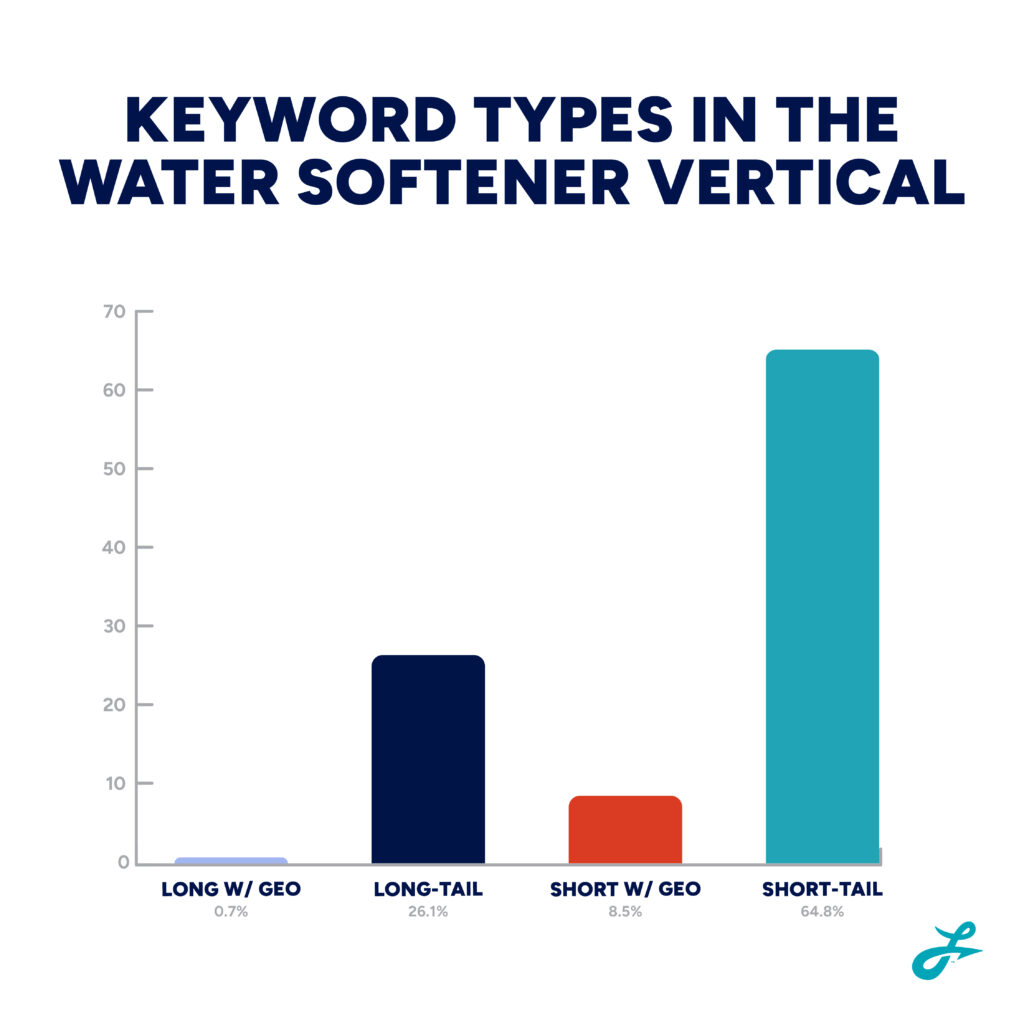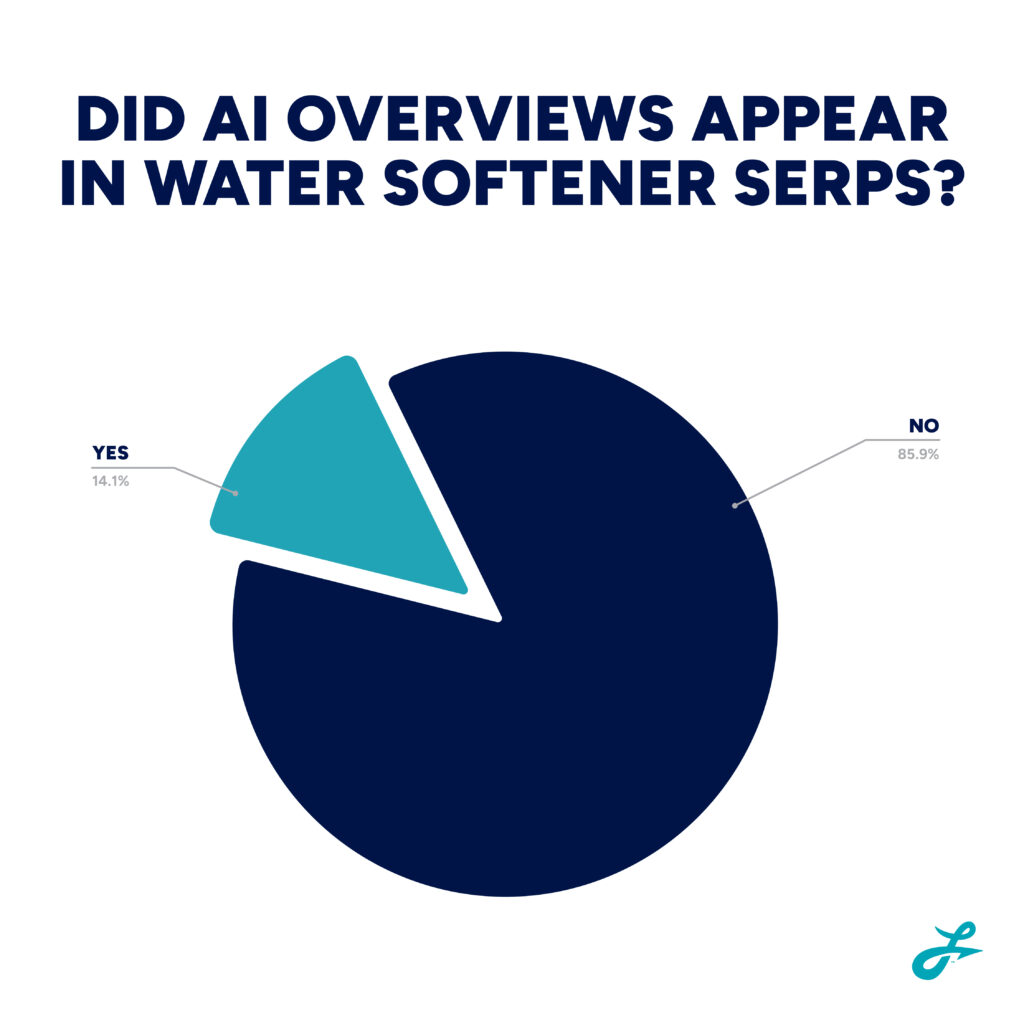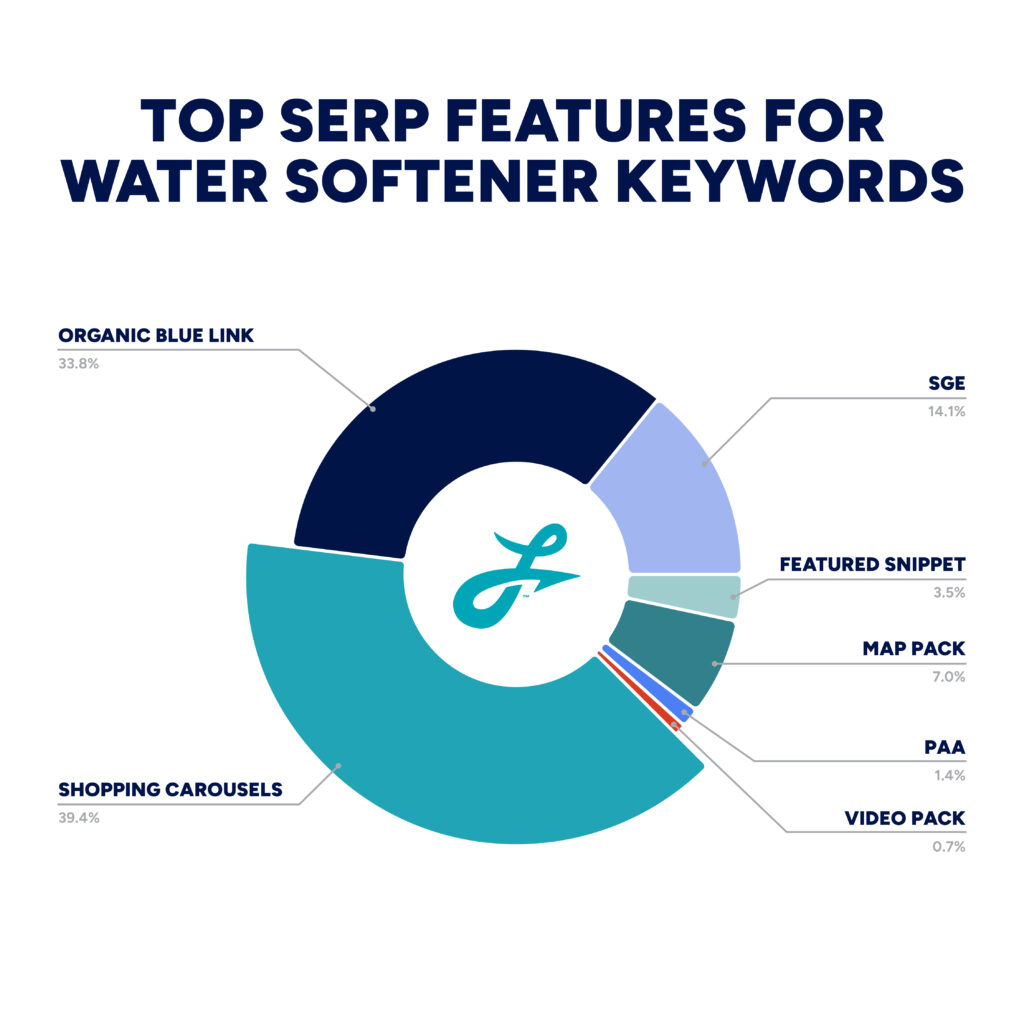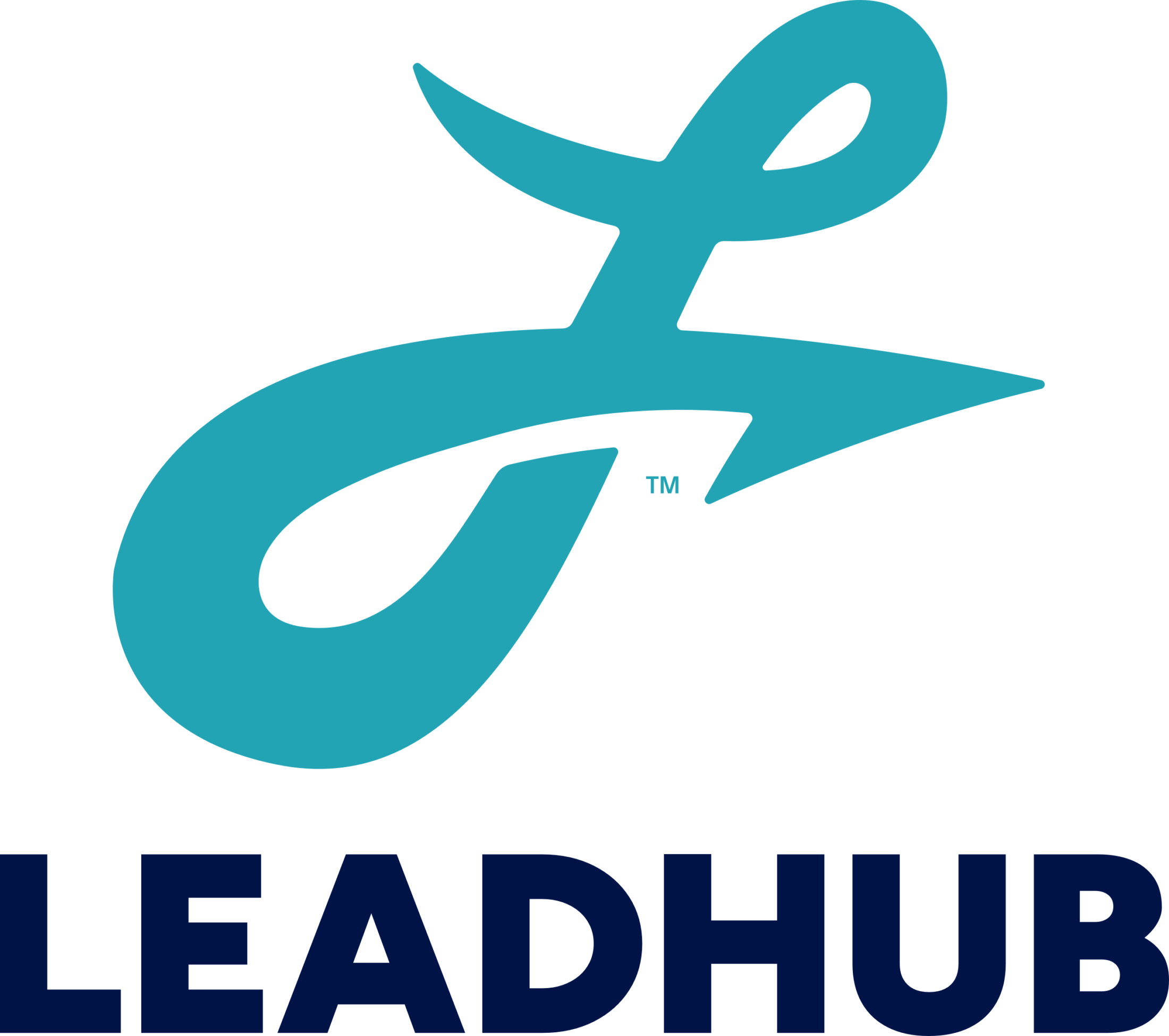Best SEO Practices For Water Softener Companies To Rank Despite AI
For water softener companies, the search landscape is evolving quickly, especially with the rise of AI-powered search features and shopping carousels. At Leadhub, we analyzed 241 water softener-related keywords to understand how search engine trends are impacting this niche industry.
Our findings reveal that e-commerce optimization is more critical than ever for water softener businesses, as shopping carousels dominate the SERPs for these searches. Here’s a breakdown of the data and actionable steps water softener companies can take to optimize their online presence and capture more high-intent traffic.
The Role Of Long-Tail Keywords In Water Softener Searches
Initially, we planned to analyze water softener keywords as part of the broader plumbing category. However, we quickly noticed that water softener keywords display unique patterns, with 26.8% of the tracked keywords being long-tail — a larger proportion than in any other industry in our study.

Long-tail keywords like “best salt-free water softener” or “benefits of a whole-house water filter” suggest that consumers are highly specific in their searches, often seeking solutions to particular water quality issues or exploring product details.
For water softener companies, this means that capturing traffic for these detailed, niche queries is essential. Users are typically in the discovery phase, asking questions to understand whether a water softener or filter meets their needs. To attract this audience, water softener companies should create content that addresses common questions about water quality and softening systems, ultimately guiding users to product pages when they’re ready to buy.
AI Overviews In Water Softener Searches: A Rising Presence
In the water softener industry, AI-generated overviews (AIOs) appeared in 14.1% of searches — a higher percentage than in HVAC or plumbing. This uptick is likely due to the high volume of long-tail keywords, which trigger AIOs more frequently as they often demand detailed, nuanced answers.

However, broad search terms like “water softener” or “water softener system” rarely trigger AIOs, indicating that traditional SEO tactics remain effective for these high-traffic keywords. Water softener companies targeting broad keywords can still rely on organic rankings, People Also Ask (PAA) boxes, and featured snippets to drive visibility and clicks.
For niche, long-tail searches, AIOs provide additional information in the search experience. To rank for these AI-driven features, companies should prioritize creating high-quality, informative content that addresses user questions directly. By aligning content with Google’s E-E-A-T (Experience, Expertise, Authoritativeness, Trustworthiness) guidelines, water softener companies can improve their chances of appearing in AIOs and capturing this traffic.
Shopping Carousels Dominate Water Softener SERPs
Our findings revealed a unique trend: the shopping carousel is the most frequently occurring SERP feature for water softener keywords, indicating a clear shift in user intent.

Consumers searching for water softeners are increasingly looking to purchase products, rather than simply seeking local services or advice. This aligns with trends observed by our Paid Media team, who noted rising costs per acquisition (CPAs) for water softener-related terms and a higher demand for product listings.
For water softener companies, the dominance of shopping carousels means that e-commerce optimization is critical. Unlike other home service industries where local SEO reigns, map pack results appear less than 10% of the time for water softener searches. Instead, water softener companies need to pivot toward product-focused SEO and prioritize appearing in shopping carousels to maximize visibility and drive sales.
How Water Softener Companies Can Optimize For Shopping Carousels
To increase visibility in shopping carousels and maximize conversions, water softener companies should focus on the following key strategies:
- Optimize product listings with structured data.
- Create compelling product descriptions that emphasize unique features.
- Use high-quality product images and, where possible, video content.
- Target pain points in content that lead users to product pages.
- Implement competitive pricing and promotions.
- Encourage customer reviews to build trust.
- Ensure a mobile-optimized, fast-loading site.
- Focus on long-tail keywords for specific product features.
- Monitor competitor listings to stay competitive.
For a more detailed breakdown of each strategy, check out our full report.
The Least Popular SERP Feature: Image Packs
In the water softener vertical, image packs were the least frequent SERP feature, appearing in only 1.5% of searches. Since consumers prioritize functionality and efficiency over aesthetics for water softeners, the image pack holds little relevance for driving traffic in this industry.
While image packs may not be worth focusing on, high-quality images on product pages are still beneficial for user experience and are crucial for shopping carousel listings. For companies offering visually unique or compact water softeners, clear, appealing images can still attract customers by highlighting specific design features or space-saving benefits.
Key Takeaways For Water Softener Companies
For water softener businesses, this analysis confirms that the shift in search behavior is leaning heavily towards e-commerce. The high occurrence of shopping carousels and the limited presence of map packs mean that companies should prioritize an e-commerce-driven SEO strategy to remain competitive.
At Leadhub, we’re experts in helping water softener companies adapt to the evolving digital landscape. Our team can guide your business through the intricacies of e-commerce SEO, ensuring you’re well-positioned to capture high-intent buyers in shopping carousels and beyond. Reach out today to explore how we can boost your visibility and conversions through strategic, data-driven SEO.
